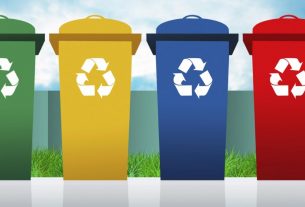The idea and the application for this project came amid the Corona Crisis . Nature has proved its power, unraveling how feeble humanity really is, and the vast degree to which we are dependent on the environment we live in. Following the return to our usual routines, we cannot forget what we have learned, meaning we need to co-exist with Nature and act in accordance with it. Environmental protection is now as relevant as ever. Responsibility for the environment and fellow humans is vital for our existence, as environmental issues are limitless.The unjust treatment of the Mother Earth has been debated for decades, yet little has been done about it. But it is not too late: our students see the dangers but fail to come up with their own initiatives. As project coordinators, we want the students to evolve from passive observers and become active players in the fight for the environment. We all share one, single planet, Seas and Oceans are international as we all breathe the same air. Hence, we want to create an international project, underlining the environmental issued need to be combat collectively as a wider society – a project, where young people exchange experiences across borders and generate impulses. The main goal is to give the students increasing responsibility as they grow to become active environmental activists. They will be encouraged to take concrete contributions striving towards the reduction of the environmental burden.
Our project aims for 150 students (age 12-16) from 6 countries to work together, in unison with teachers, school communities, families and participating institutions.
The first focus of this project is nature. The students will learn the different landscapes of their countries. In Germany, they will follow wolf tracks, learn about the forest as an eco-system and appreciate biodiversity. Through the second focus of this project, students will debate about energy, the pros and cons of alternative energy sources and visit a biofuel plant in Denmark. In addition, they will build a windmill out of recyclable materials. As a third topic, students will research and discuss their countries’ water balance. In Portugal, a country with an extensive coastline, students will examine sand searching for Microplastics. To build up on their findings, students will visit a sewage-treatment facility. During the fourth focus, students will explore the topic of waste in Rhodes, Greece. A recycling center will be visited, where students will participate in the “Old becomes New” workshop. They will learn to develop little daily habits, which help avoiding generating waste and increase recycling. Every school will then organize exchange markets. The fifth focus of this project will be set on food consumption in Turkey. Students will learn ways to avoid food waste and will visit a “Bio-company” that turns organic waste into fertilizer. The School-STEM-Club will present an app developed to control the watering of plants.As a sixth and final focus, students will visit Poland to create guidelines for a sustainable school, basing on their experiences and knowledge gained throughout the project. The project should follow the subsequent methodical steps: discover, share knowledge, take proactive measures, and use STEM, all supported by various handcraft techniques. It is expected that as a direct result of the project, schools, as well as the mindset of the students, will transition towards further consideration of sustainability in the daily life, while students’ sense of responsibility will be strengthened and a proactive attitude developed. A tangible outcome will be the guidelines created by the students themselves, outlining concrete recommendations on running a sustainable school. These will be created in German, English, as well as each country’s official language. Following the completion of the project, all experiences will be shared and discussed between the participating schools as the relationships will be nurtured though the eTwinning platform alongside a reporting system being put in place. In the past few months, we have discovered the terrifying power of a minuscule virus to turn the daily lives of billions of people upside down. An empty plastic bottle, an unnecessarily lit lamp, a brown banana that lands in the trash can be just as minuscule. Nature has warned us. Now it is our turn and that of the students. The action must be taken.
The future starts now!

